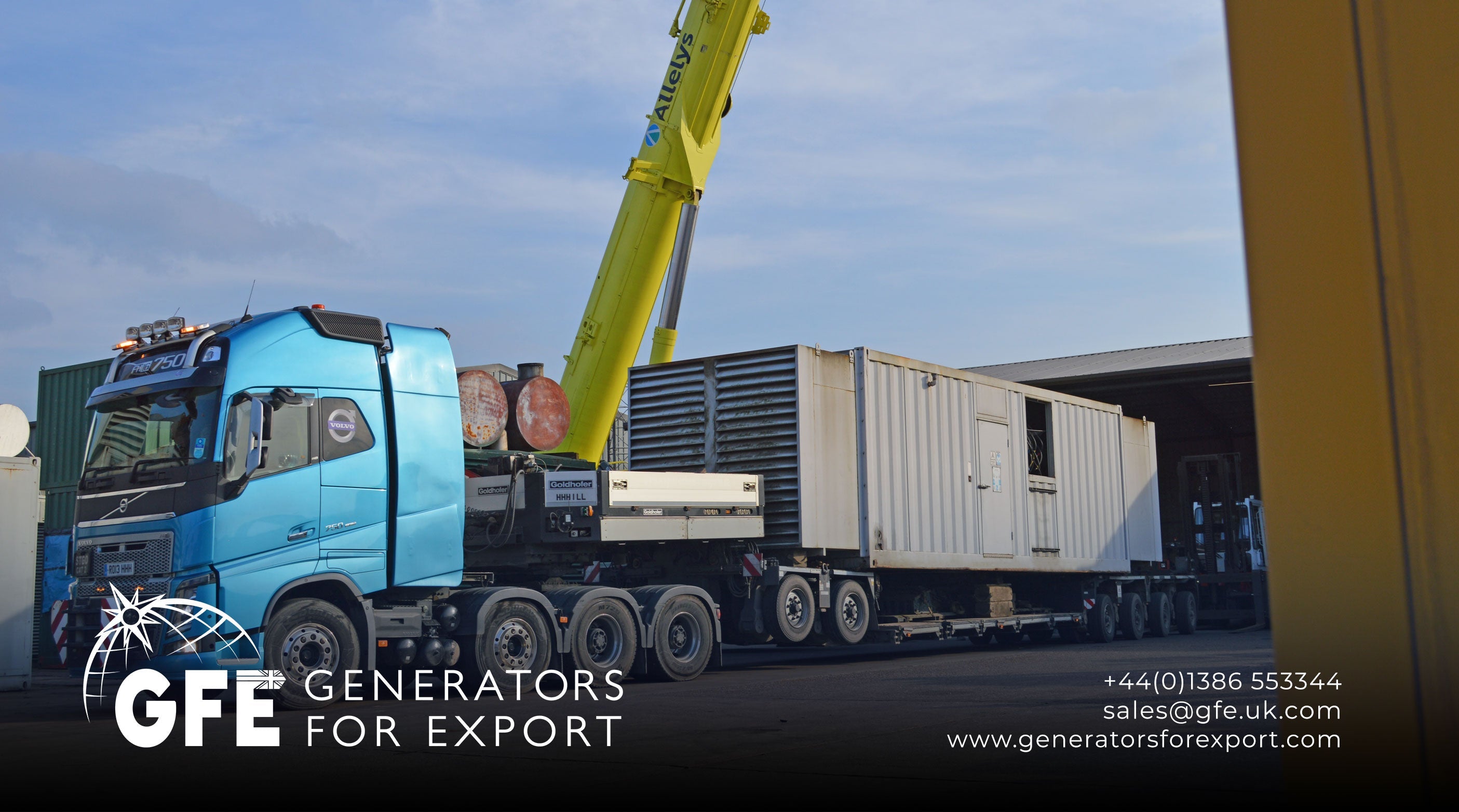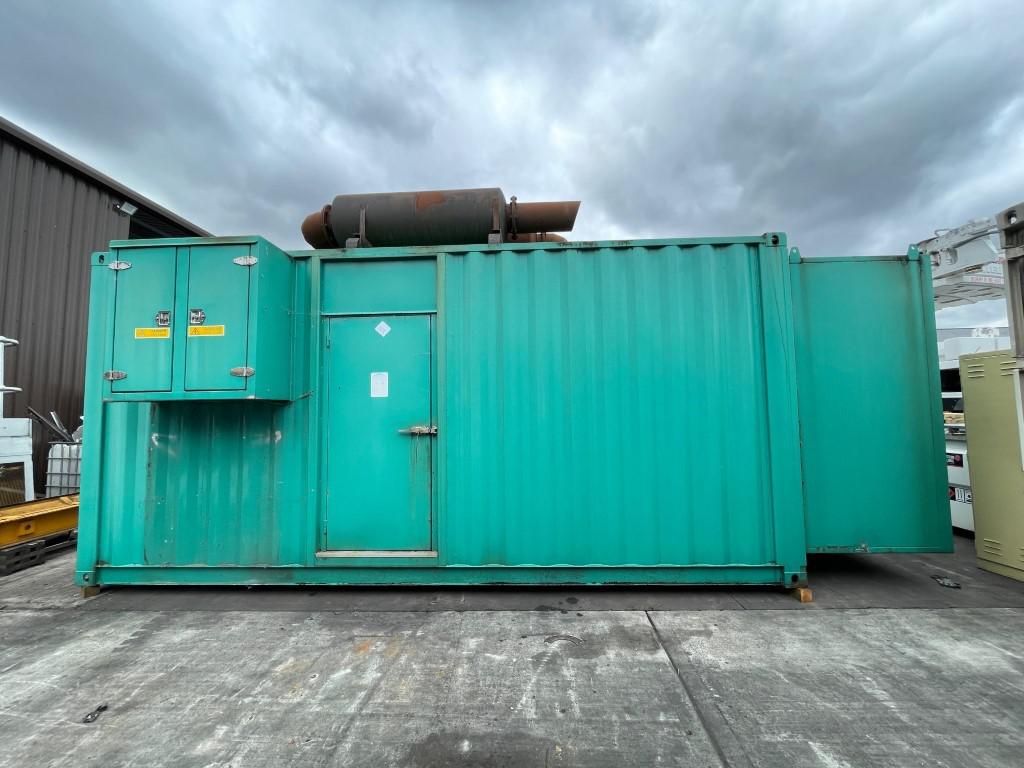Single and Three-Phase Generators: Everything You Need to Know
When it comes to choosing the right generator, understanding the difference between single-phase and three-phase generators is essential. At Generators For Export, we specialise in providing high-quality, used generators for homes, businesses, and industrial purposes. In this comprehensive guide, we will walk you through the key differences between these two types of generators, their applications, and help you make an informed decision for your specific needs.
What Are Single and Three-Phase Generators?
Generators are devices that convert mechanical energy into electrical energy. Depending on the power needs of your application, you will typically choose between single-phase and three-phase generators. The difference between these two types lies in how electricity is generated and delivered.
Single-Phase Power Systems
A single-phase system delivers power via one alternating current (AC) waveform, resulting in a sinusoidal flow of electricity that alternates between positive and negative. This system is more straightforward, economical, and ideal for low-power applications like residential homes, small businesses, and backup systems.
Three-Phase Power Systems
In a three-phase system, electricity is supplied through three interlaced AC waveforms. These are spaced 120 degrees apart, allowing for a more balanced, consistent, and efficient delivery of electricity. This makes three-phase systems ideal for applications that require higher power, such as factories, data centres, and large commercial buildings.
What Is a Single-Phase Generator?
A single-phase generator is designed for applications that do not require large amounts of electrical power. Here’s what you need to know:
- Definition: A single-phase generator generates power using one alternating current (AC) waveform. The voltage alternates in a regular pattern, creating a pulsating power output.
- Applications: Single-phase generators are commonly used for residential homes, small offices, and low-powered commercial establishments. They are ideal for powering appliances, lighting, and small equipment.
- Simplicity and Cost: These generators are simpler in design and less expensive compared to their three-phase counterparts. They are easy to maintain and operate, making them a popular choice for basic applications.
- Advantages:
- Lower initial cost
- Easier installation
- Ideal for small-scale operations
- Less complex maintenance
However, single-phase generators have limitations when it comes to delivering power over long distances or to heavy-duty equipment.
What Is a Three-Phase Generator?
A three-phase generator is designed for industrial and large-scale applications, delivering power through three alternating current (AC) waveforms. Here’s why this type of generator is suited for heavy-duty tasks:
- Definition: Three-phase generators deliver power through three interlaced AC waveforms, each offset by 120 degrees from one another. This setup ensures a continuous flow of power with less fluctuation, which is ideal for large machinery and industrial equipment.
- Applications: These generators are commonly used in factories, power plants, large commercial buildings, and data centres. They are essential in any application that requires high-power output and consistent energy supply.
- Efficiency: Three-phase generators are more efficient than single-phase generators. They can deliver more power while using less energy, making them more economical for large-scale operations.
- Advantages:
- Higher efficiency
- More consistent power delivery
- Ideal for heavy-duty machinery and large facilities
- Greater energy capacity
While more complex and expensive, three-phase generators are designed to handle the energy demands of industrial settings, where uptime and reliability are critical.
Key Differences Between Single and Three-Phase Generators
Power Delivery
- Single-Phase: Power delivery in a single-phase generator is pulsing, with periods of low and high voltage. This can be adequate for smaller applications but can cause problems for high-demand machinery, leading to power inefficiencies.
- Three-Phase: Three-phase systems, on the other hand, deliver steady and continuous power, eliminating the dips and peaks seen in single-phase systems. This ensures that large machines and high-demand operations receive a stable and reliable power supply.
Applications
- Single-Phase: Ideal for homes, small businesses, and low-powered equipment, such as lighting, small appliances, and home heating systems.
- Three-Phase: Designed for industrial applications such as manufacturing plants, large commercial buildings, data centres, and anywhere high power and continuous operation are required.
Cost and Complexity
- Single-Phase: These generators are simpler, less costly, and easier to maintain. However, they are limited in terms of power output and scalability.
- Three-Phase: These generators are more complex and require more initial investment. The installation process can be more involved, and maintenance may require specialised knowledge. However, they provide greater efficiency and are more cost-effective in the long term for large-scale operations.
Choosing Between Single and Three-Phase Generators
When deciding between a single-phase and a three-phase generator, several factors need to be considered to ensure you choose the right option for your needs.
Power Requirements
The most important factor in choosing the right generator is determining how much power you need. Here are some questions to ask:
- What is the total load demand? A single-phase generator is sufficient for low-power needs like lights, small appliances, and basic electronics. However, a three-phase generator is required for heavy equipment, large motors, and large commercial applications.
- Do you plan to expand your power needs in the future? If you expect your power needs to grow over time, opting for a three-phase generator may provide long-term scalability.
- Try our kVA calculator to work out what size generator you require.
Long-Term Efficiency
- Single-Phase: If you’re running a small business or using a generator primarily for backup purposes, a single-phase generator can be an efficient and economical choice.
- Three-Phase: For long-term, large-scale operations or any business that requires consistent, high-powered electricity, three-phase generators are the best option. They offer superior efficiency and reliability, making them ideal for facilities that need to run 24/7.
FAQs About Single and Three-Phase Generators
What is the main difference between single-phase and three-phase generators?
The primary difference lies in the power delivery. Single-phase generators supply electricity through one AC waveform, while three-phase generators deliver electricity through three staggered AC waveforms, resulting in more efficient and reliable power.
Which generator type is more energy-efficient?
Three-phase generators are more energy-efficient because they provide a steady, continuous flow of power, which reduces energy loss and is more reliable for large machinery and equipment.
How do I know if I need a three-phase generator?
If your operation involves high-power machinery, industrial equipment, or a large commercial facility, a three-phase generator will be necessary to ensure reliability and efficiency. Single-phase generators are typically sufficient for small-scale, residential, or backup use.
Maintenance Tips for Generators
To keep your generator running smoothly, regular maintenance is essential. Here are some tips:
- For Single-Phase Generators: Check the fuel levels and oil regularly. These systems are simpler and require less maintenance, but they should still be checked for wear and tear.
- For Three-Phase Generators: Due to their complexity, these systems require more in-depth maintenance. Regularly inspect the fuel system, cooling system, and wiring, and schedule periodic professional check-ups to ensure optimal performance.
Why Choose Generators For Export?
At Generators For Export, we are committed to providing high-quality, used generators for all types of applications. Whether you need a single-phase generator for your home or a three-phase generator for industrial purposes, we have a wide selection to meet your needs.
- Expert Guidance: Our team is experienced in helping businesses and individuals select the right generator based on their energy requirements.
- High-Quality Used Generators: All our generators undergo rigorous testing to ensure they meet industry standards and perform reliably.
- Eco-Friendly: By purchasing used generators, you’re contributing to sustainability by reducing waste and promoting reuse.
Get In Touch With Us Today!
Ready to power your operations with the perfect generator? Contact us at Generators For Export for more information or to make a purchase. Our team is here to assist you with any questions you may have.
Call: +44(0)1386 553344 | Email: sales@gfe.uk.com





